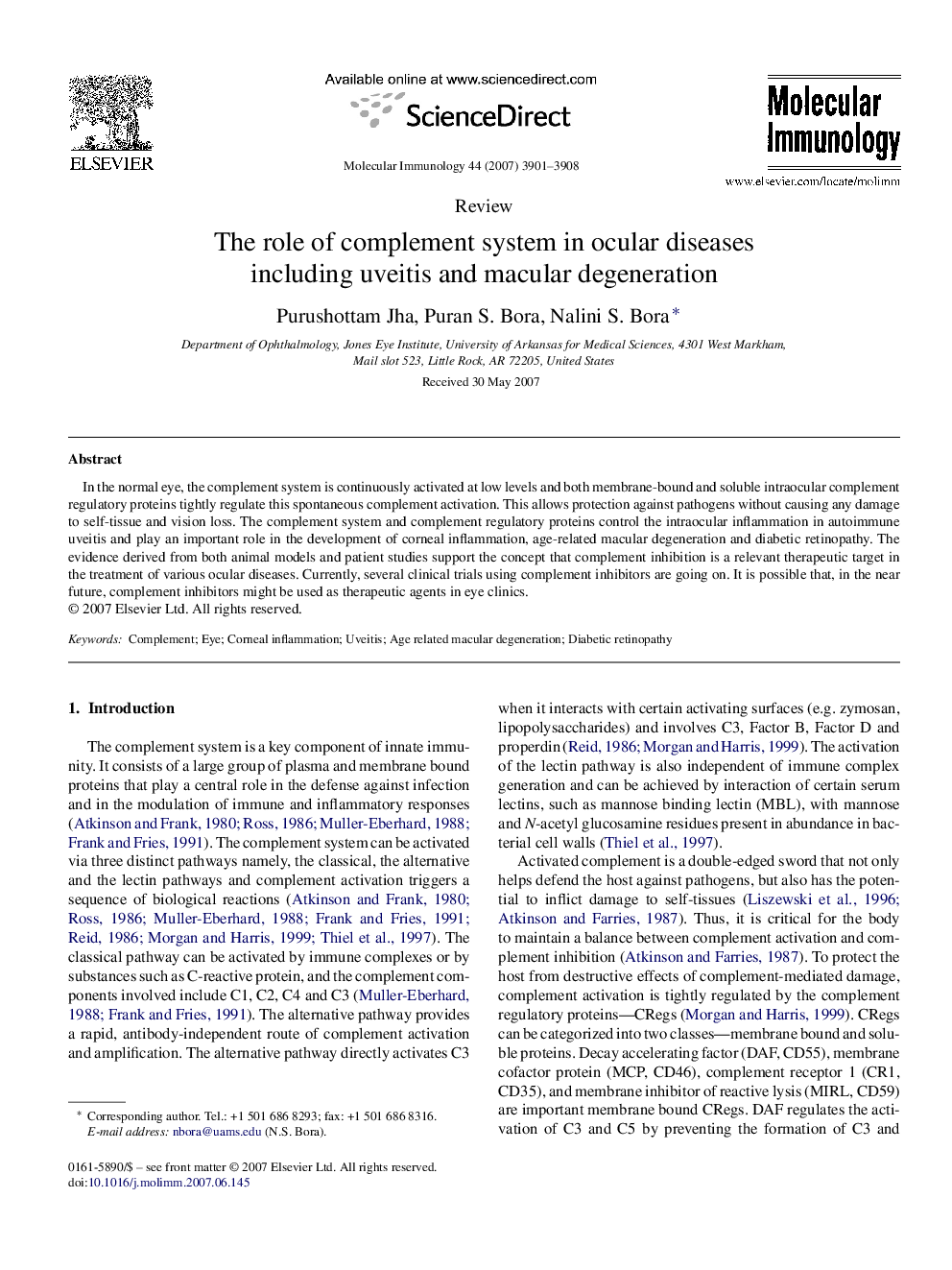| Article ID | Journal | Published Year | Pages | File Type |
|---|---|---|---|---|
| 2833073 | Molecular Immunology | 2007 | 8 Pages |
In the normal eye, the complement system is continuously activated at low levels and both membrane-bound and soluble intraocular complement regulatory proteins tightly regulate this spontaneous complement activation. This allows protection against pathogens without causing any damage to self-tissue and vision loss. The complement system and complement regulatory proteins control the intraocular inflammation in autoimmune uveitis and play an important role in the development of corneal inflammation, age-related macular degeneration and diabetic retinopathy. The evidence derived from both animal models and patient studies support the concept that complement inhibition is a relevant therapeutic target in the treatment of various ocular diseases. Currently, several clinical trials using complement inhibitors are going on. It is possible that, in the near future, complement inhibitors might be used as therapeutic agents in eye clinics.
